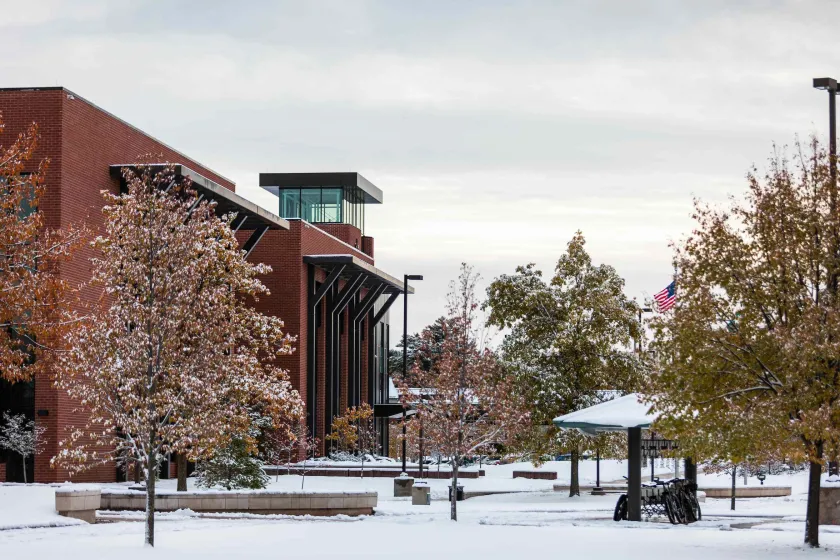As Northern Michigan University transitions to new leadership, an interim strategic plan is being developed that identifies five focus areas and related goals and strategies, along with the faculty and administrative chairs who will lead focus area teams. NMU faculty, staff and students will have an opportunity to provide feedback on plan draft elements at engagement sessions scheduled at various times March 14-18. Register for a session here.
A final draft will be presented to the NMU Board of Trustees in late April. The interim strategic plan was a directive from the board to provide an onramp for Northern's new president.
“We want to bring the plan to the campus for specific feedback on the focus areas, focus goals and identified strategies,” said Jason Nicholas, assistant provost and director of Institutional Effectiveness. “Our hope is to engage 400-500 participants. The feedback will be themed and coded. Institutional Effectiveness will generate a feedback report with insights from the engagement sessions. The feedback will be provided to the focus area teams to use for final revisions.”
The five focus areas, along with their respective co-chairs, are:
-New Markets, New Supports: Dale Kapla, Academic Affairs, and Amy Barnsley, Mathematics and Computer Science.
-Diversity, Equity and Inclusion: Chris Greer, Dean of Students, and Weronika Kusek, Earth, Environmental and Geographical Sciences.
-Rural Roots: Steve VandenAvond, Extended Learning and Community Engagement, and Bethney Bergh, Education, Leadership, and Public Service.
-Environmental Sustainability: Kathy Richards, Facilities, and Sarah Mittlefehldt, Earth, Environmental and Geographical Sciences.
-Emergency Focus Area, COVID-19 Response: Co-chairs Cindy Paavola of the President's Office and Mike Bath of Public Safety.
“Focus area titles may change, but the priorities will likely be the same in the final draft,” said Nicholas. “These areas already have established work going on with some new projects slated for the near future. We want to highlight this good work and provide a framework that showcases it clearly.”
The interim strategic plan also includes the university's “Bedrock Elements”—its mission, vision and core values—which will not be changed during this process. Institutional Effectiveness completed preliminary work distilling the information in existing documents to a concise synthesis. This work allows the focus area teams to be more efficient, such as clarifying definitions, identifying initiatives already underway, and drafting templates for teams to add and refine content.
“Separate action plans will be developed during phase 2, which follows Board of Trustees approval of the final interim plan,” Nicholas said. “This work will begin in May, with the goal of completing action plans for the board's June/July retreat.
"This interim strategic plan is intended to cover 18-24 months; it's not meant to look out five or 10 years. Next-generation strategic planning is also something we are preparing for and we hope to have proposals ready for the new president on day one. We will tackle longer term planning priorities at that time.”

